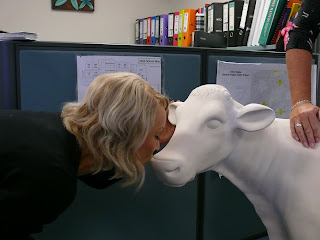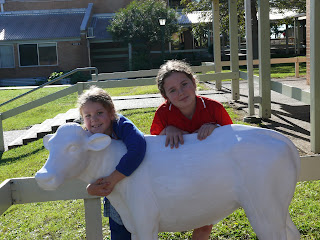Most of the people in our Archibull team are passionate about recreational activities on the beach and want to keep our beaches clean.
So our big idea is
'Looking after waterways'
We have been learning about the importance of recycling packaging. Most dairy foods are packaged in recyclable packaging but Australians only recycle around 50% of all materials that are able to be recycled. A great deal of un-recycled rubbish ends up in our river systems which in turn flow into the ocean. The impact of this rubbish is catastrophic on marine environments. Our final project will include lots of visual information about the importance of keeping rivers clean and recycling packaging.
In our research we discovered the importance of trees in farming environments. Tress help to stop soil erosion, keep river systems clean and healthy, stabilise water tables and provide shelter for animals. Our final project will include many interesting facts about the problem that deforestation has caused to farming land and the ways in which farmers are addressing these problems.
We were interested to discover that farmer need to keep effluent and livestock out of waterways to help keep our river systems clean. Our project will include sculpture to represent ways in which farmers are keeping rivers clean and healthy.
Working on our project with recycled materials
Our aim is to produce an artwork that raises awareness about sustainable farming practices, that keep our rivers clean and healthy. We also wish to raise awareness in the community about what individuals in towns and cities can do to keep waterways clean. We hope to educate people on the importance of recycling packaging, reusing items, respecting our environment and reducing the amount of rubbish in rivers and landfill.
Our project will consist of many aspects that wherever possible will be recycled or reused items to reduce the environmental impact of our art work to show our respect for our planet.
Using more recycled products to use in our art work
Fun Fact: Recycling 125 plastic milk bottles is enough to make one 140 litre wheelie-bin















